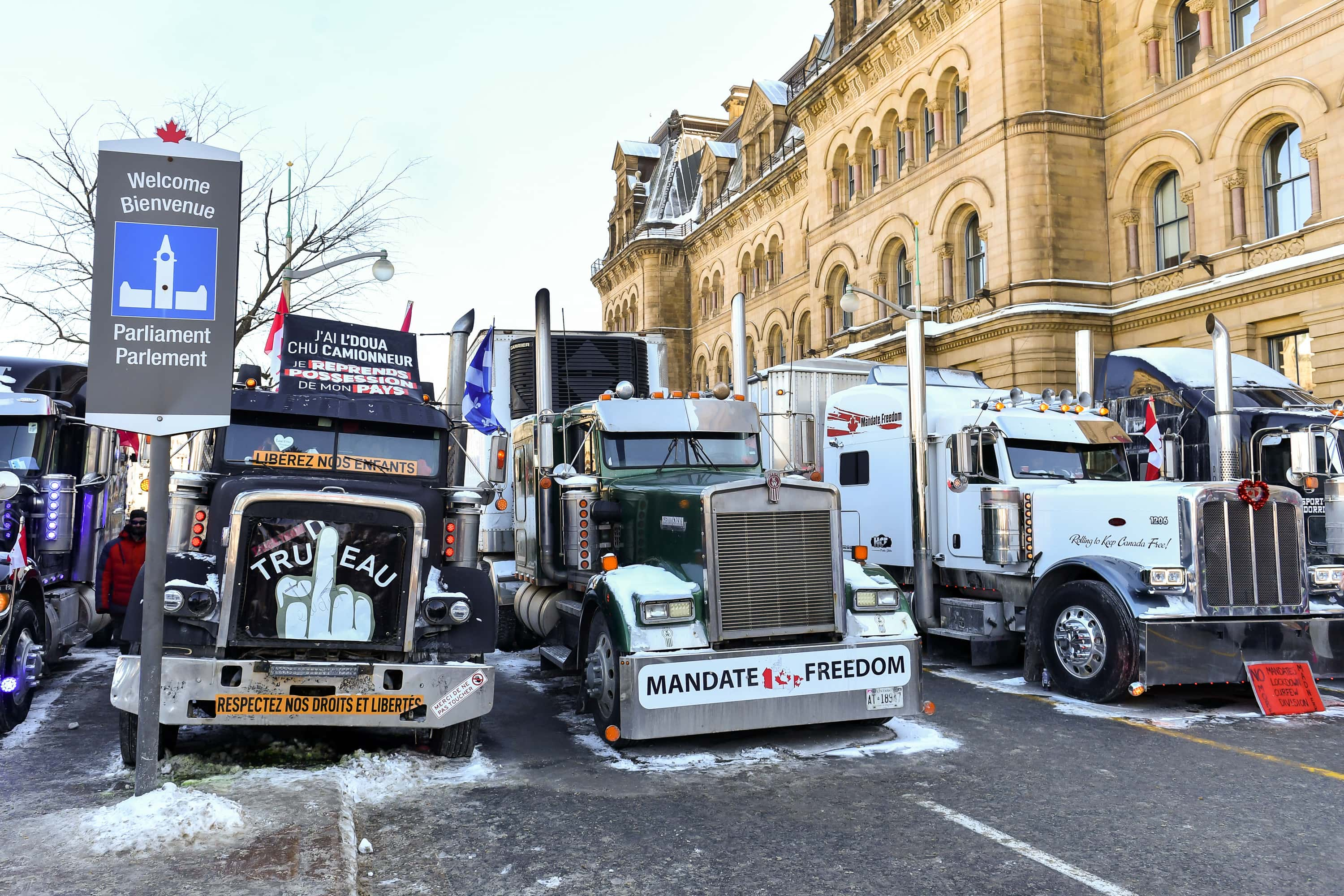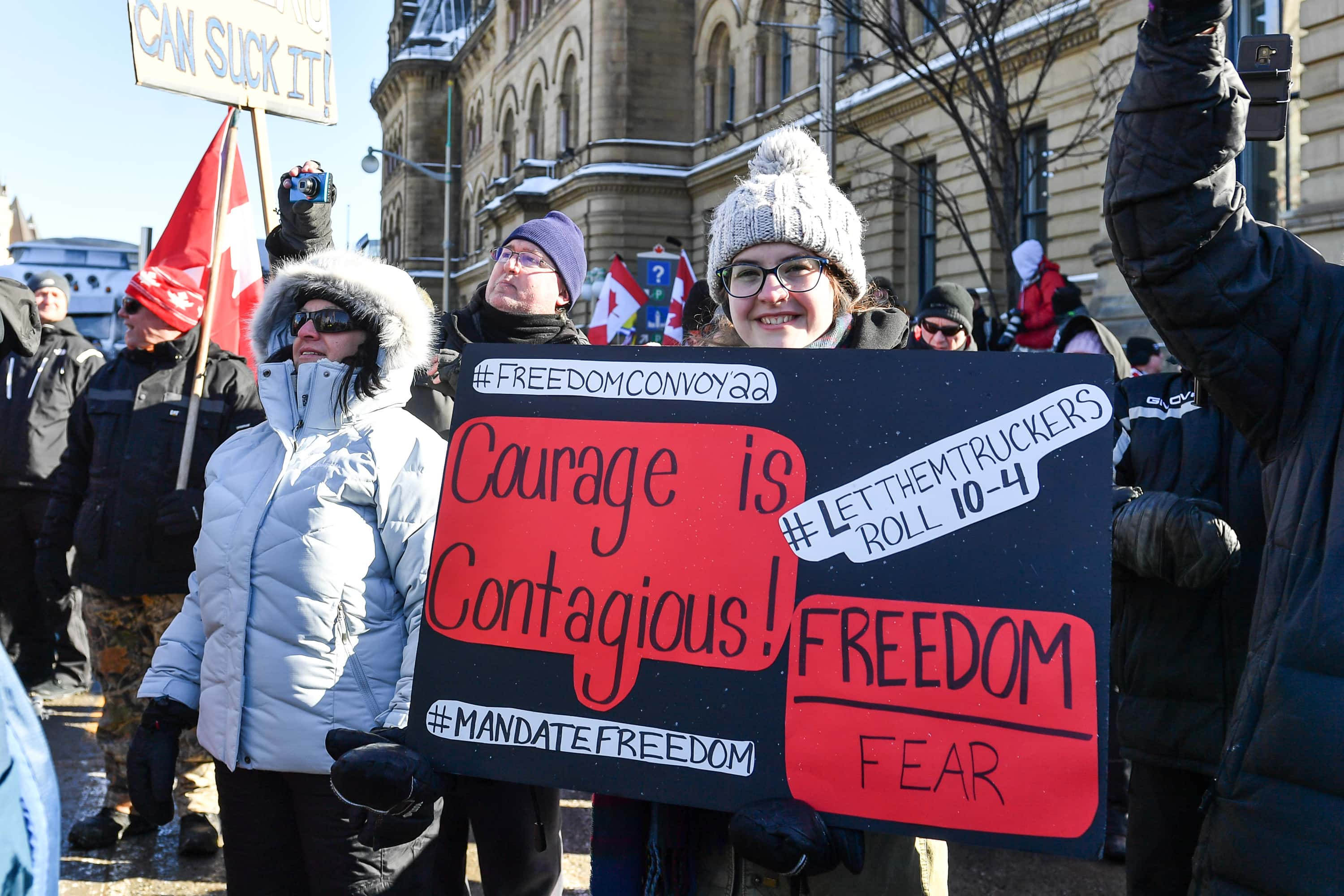Did Justin Trudeau declare martial law? Here’s the truth behind the Emergencies Act

"Justin Trudeau suspended democracy and declared Canada a dictatorship," Fox News host Tucker Carlson said on February 14, 2022, hours after the Canadian Prime Minister chose to invoke the Emergencies Act. The move is a desperate attempt by Trudeau to disperse protesting truckers across the nation as police have so far failed to do so.
In Ontario, a court recently approved for the local government to freeze GiveSendGo donations to the 'Freedom Protest', but the platform refused to comply. Bans on Facebook have also forced protestors to shift to alternative sites like Telegram, as they desperately dodge attempts to shut down their protests. The protests have also inspired similar actions across the world, from the US to France, as fringe groups continue to battle the vaccine and mask mandates.
RELATED ARTICLES
What is Freedom Convoy? Here's why Canadian truckers are protesting in Ottawa
Did ‘The Simpsons’ predict ‘Freedom Convoy’ protests against Covid vaccine mandate?
Now it appears Trudeau has had enough. Days after being taken to a secure location, the Prime Minister largely kept away from intervening, but it appears even he's had enough. On February 14, he invoked the Emergencies Act, for only the fourth time in Canadian history. Here's a brief look at what the act is, and most importantly what it is not.

What is the Emergencies Act?
Formerly known as the War Measures Act, the act gives the government powers that it normally does not have, Reuters explained. It can only be invoked if a situation "cannot be addressed by any existing federal law and if it exceeds the capacity of the provinces". For an emergency to qualify under the act, it must prove to be a threat to Canada's national security under one of the four justifications - espionage or sabotage, foreign-influenced activities, threats or use of acts of serious violence for political, religious, or ideological objectives, or covert, unlawful acts intended to undermine or overthrow the constitutionally established government.
It's a very high bar to clear, and must also be approved by the Canadian parliament before being invoked. The War Measures Act has been used three times before - during the two World Wars and in 1970 by Trudeau's father late prime minister Pierre Trudeau. The senior Trudeau invoked the act in response to the kidnapping of a British diplomat and a provincial Cabinet minister by a militant group. However, in its current form, the Emergencies Act has never been used before.

What can Trudeau do under the act?
The act gives the prime minister a broad range of powers such as a ban on public assembly, barring travel to an area, and ordering businesses to render an essential service. Notably, it also gives the PM the ability to deploy the military on Canadian soil, as Pierre Trudeau did. However, for now, the prime minister has ruled out deploying the military. In regards to the Freedom Convoy and other protests, Trudeau has not yet announced what his exact intention is.
The act does allow the government to freeze the finances of supporters of the protest without a court order. Insurance on the vehicles used can also be suspended. All crowdfunding and payment platforms will have to register with Canada's anti-money laundering agency and report "suspicious activity" immediately. It is also expected that the government will order towing companies to take trucks away from the site.
Defending the move, Trudeau said, "It is no longer a lawful protest at a disagreement over government policy. It is now an illegal occupation. It's time for people to go home." He promised that the act would be "geographically targeted", and "reasonable and proportionate." Trudeau added, "We are not preventing the right of people to protest legally. The act is to be used sparingly and as a last resort." It is also vital to note that the act will expire after 30 days, and is still subject to the protection of the Charter of Rights and Freedoms.
Those facts mean that the act isn't a declaration of "dictatorship" as Carlson said. Some legal experts have also argued if the trucker protests have met the very high threshold for the Emergencies Act, which the parliament is set to debate in the coming days. Not only does the act have to be supported by the parliament, but also by the regional government. Furthermore, an inquiry must take place within 60 days of the declaration, so there are plenty of checks and balances in the system.










